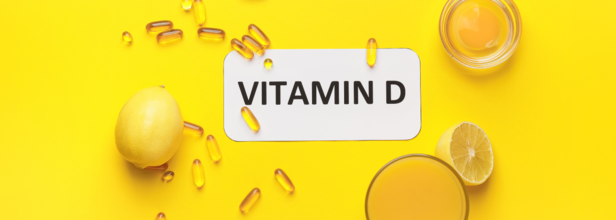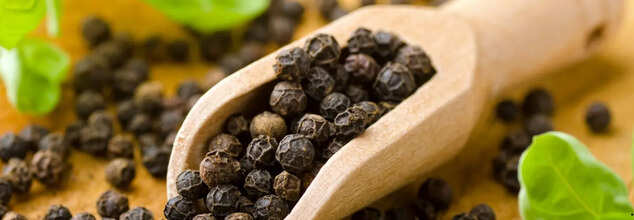
Image Credits: Canva
Three 'Simple Drink Swaps' Are Your Natural Prescription For A Sharp Memory
Your daily coffee, your Saturday cocktail, or your afternoon soda may be doing more than satisfying your thirst—they may be silently damaging your brain. One of the world's leading neuroscientists with expertise in Alzheimer's prevention, Dr. Robert Love, advises that the beverage you choose can have a powerful effect on your memory, mental acuity, and brain health over the long term.
In a recent Instagram video, which has reached millions, Love named three popular beverages that can speed up brain decline and put you at risk of dementia. But it's not all doom and gloom—he also shared easy, healthier substitutes that can feed your brain and shield your memory for decades to come.
If you want to keep your mind sharp, it's time to think twice about what's in your cup.
Why What You Drink Matters for Memory?
Brain health is not only about what you consume—what you drink matters just as much. Some drinks can heighten inflammation, upset gut health, and lead to neurodegeneration in the long run. Research has revealed that chronic inflammation and insulin resistance are major causes of cognitive impairment, and hence dietary habits become crucial in the prevention of memory-related diseases such as Alzheimer's.
Dr. Love identifies three beverages that ruin memory and speed brain ageing—and provides simple switches with long-term mental advantages.
Drink #1: Alcohol
Alcohol is arguably controversial in terms of its health impact, but science is becoming more definite: it's unhealthy for your brain.
"Alcohol is neurotoxic—it damages and kills neurons," says Love. "It also disrupts gut bacteria, and what’s good for your gut is good for your brain. By harming your gut bacteria, you’re also harming your brain."
Beyond its immediate effects on cognitive function, alcohol contributes to chronic inflammation, liver stress, and poor sleep—all of which are linked to impaired memory and increased dementia risk.
According to Love, beer is particularly harmful to brain health due to its gluten content and its ability to raise uric acid levels.
"Gluten is inflammatory, and beer also increases uric acid, which promotes belly fat storage," he explains. "Ever heard of a beer belly? That’s uric acid at work."
If you do still intend to drink alcohol on occasion, Love suggests opting for good-quality tequila with a squeeze of fresh lime. "It's one of the cleaner options and will probably do less damage than beer," he points out. The best option for your brain, though, is to reduce or eliminate alcohol consumption altogether.
Drink #2: Soda
Soda is a notorious weight-gain and metabolic-disorder culprit, but its effects on brain health are no less alarming.
"Soda is filled with sugar and has no fibre, so it spikes your blood sugar and insulin levels very quickly," says Love. "This causes inflammation, and inflammation is one of the largest risk factors for Alzheimer's disease."
Consuming high amounts of sugar has also been associated with cognitive decline, memory loss, and elevated risks of neurodegenerative disorders. Research also indicates that regular consumption of soda can decrease the size of the hippocampus—the memory center of the brain—over time.
Rather than grabbing for a can of soda, grab sparkling water with a splash of lemon for a cool, brain-smart option. If you must have caffeine, green tea gives you robust antioxidants that maintain cognitive function and fight inflammation.
Drink #3: Giant Frappuccinos
That gigantic, sugar-ridden frappuccino at your favorite coffee house may be providing you with more than just a shot of energy—it could be silently destroying your brain.
"These beverages have too much caffeine—usually 300 to 400 milligrams—and are full of sugar," cautions Love. "That's not only terrible for your heart and blood vessels; it's terrible for your brain, as well."
Too much caffeine overstimulates the nervous system, causing heightened anxiety, sleep disruptions, and even cognitive impairment with prolonged use. High sugar content, on the other hand, leads to inflammation, insulin resistance, and compromised brain function.
If you're an every-day-coffee fan, opt for matcha or black coffee. They're both rich in brain-fueling antioxidants, but it is important to ensure that they're organic.
"Regular coffee is often filled with pesticides, and those are detrimental to brain function," Love adds. Organic matcha and black coffee offer a cognitive boost with no toxic load.
What are Some Brain-Boosting Habits?
While replacing dangerous beverages with more healthful ones is a fine start, the overall lifestyle decisions count as well. Here are some other steps to help keep your memory and brain sharp:
- Drink plenty of water. Cognition can be affected by dehydration, so be sure to get plenty of fluids during the course of the day.
- Consume a brain-healthy diet. Emphasize whole foods with antioxidants, healthy fats, and fibre to support both your brain and gut.
- Prioritize sleep. Lack of sleep is connected to memory loss and brain degradation. Strive for seven to nine hours of good-quality rest per night.
- Exercise your body. Exercise can help brain function by increasing blood flow and eliminating inflammation.
Brain health has nothing to do with genetics and everything to do with the everyday choices you make. No beverage is going to completely ruin your cognitive abilities tomorrow, but continually drinking toxic substances will catch up with you.

Credits: Canva
What Role Does Vitamin D Play In Your Gut Health?
Vitamin D is known for its role for maintaining strong bones and teeth. However, its benefits can be extended beyond bone health and skeletal health. It is an essential nutrient that is involved in several bodily functions, including immune support, blood sugar regulation, and gut health.
A research conducted through the MetA-Bone Trial by the Washington Post, focused on how a dietary fiber supplement can impact bone mass in children and adolescents. It is in this process that the team uncovered a surprising connection between vitamin D and gut health.
How Was The Research Conducted?
The research examined 213 children and adolescents from South Florida, who were primarily Hispanic and Blacks. Their vitamin D levels were measured before they started taking the supplement. 68% of them had suboptimal vitamin D levels.
South Florida has abundant of sunshine around the year, the finding was unexpected, in fact, concerning. While vitamin D is present in some foods, most of it can be consumed through sunlight. In fact, most Americans rely on sunlight for their vitamin D intake. This deficiency is alarming for children and adolescents who are approaching their puberty, which is a period of rapid physiological change and includes bone mass development.
The Many Roles of Vitamin D
Vitamin D plays a crucial role in different bodily functions. Vitamin D receptors are present in several organs which serve as docking stations for the vitamin and allows it to exert its effects on the skin, intestines, bones, parathyroid gland, immune system and pancreas.
One of vitamin D’s primary functions is regulating calcium levels in the body. This regulation is essential not only for bone formation and maintenance but also for the proper functioning of the nervous system. Vitamin D also contributes to cell differentiation, the process by which cells become specialized to perform specific tasks. Additionally, it plays a role in insulin secretion, blood pressure regulation, muscle repair, immune function, and nutrient absorption.
How Can Vitamin D Support Your Gut Health?
Your gut system is home to many vitamin D receptors and so it can contribute to better calcium absorption and a stronger intestinal barrier.
It is this barrier that allows the intestines to absorb nutrients while keeping harmful bacteria and toxins out. It consists of intestinal cells re connected by proteins which are called the tight junctions. Vitamin D receptors also help produce these tight junctions and ensure the integrity of the gut lining.
Research indicates that a deficiency in vitamin D can weaken these receptors, reducing the strength of the intestinal barrier. A compromised barrier allows substances from the gut to enter the bloodstream, leading to inflammation. This breakdown has been associated with various health conditions, including liver disease, Type 1 diabetes, obesity, and gastrointestinal disorders such as celiac disease, inflammatory bowel disease, and colon cancer.
As part of our study, we also assessed the intestinal barrier strength of our participants and compared it with their vitamin D levels. Our findings revealed that children with suboptimal vitamin D levels had a higher risk of compromised gut health. Even among otherwise healthy children, low vitamin D levels could potentially increase the risk of chronic diseases at an early age.

Image Credits: Canva
Can Homeopathy Really Detox Your Body? Expert Weigh In
Detoxification is the body's natural cleansing process of eliminating dangerous toxins that have built up from environmental toxins, poor diets, and stress. It cleanses the blood, liver, and other organs involved in the process of waste elimination. While mainstream detoxing processes usually consist of rigid diets, fasting, or colon cleanses, homeopathy offers a softer and holistic means of stimulating the body's own cleansing processes.
The new lifestyle has contributed immensely to changed eating patterns, resulting in increased chronic conditions of obesity, diabetes, and heart diseases. Toxins penetrate the body in the form of processed foods, alcohol, pollution, and stress. They become part of the blood and lymphatic system, slowly accumulating in essential organs such as the liver, kidneys, and intestines. These toxins, if not efficiently eliminated, can result in fatigue, gastrointestinal discomfort, skin ailments, and compromised immunity.
The liver is the primary organ for detoxification. Through the process of metabolism, the Phase 1 detoxification of the liver (also referred to as the P450 enzyme system) creates free radicals, which can cause tissue damage if there are not adequate antioxidants within the body. This is why dietary or supplement replenishment of antioxidants is important in order to detoxify efficiently.
Can Homeopathy Naturally Detox?
As opposed to traditional detox routines that are hard on the body, homeopathy acts on the cellular level to complement the body's inherent capacity for detoxification. According to Dr. Manju Singh, Homeopathy expert, homeopathy does not cleanse but instead 'drains' toxins, and that it activates the body's defense mechanisms, allowing toxins to be removed effectively without an interruption in overall health.
Homeopathic Remedies for Detoxification
Nux Vomica: Perfect for detoxifying after binge drinking, caffeine, or fast foods. Alleviates bloating, nausea, and stomach discomfort.
Lycopodium: Facilitates liver function and eliminates digestive problems such as gas, bloating, and acidity.
Sulphur: Famous for purifying the skin, it clears acne, eczema, and rashes due to toxin accumulation.
Berberis Vulgaris: Maintains kidney health by facilitating the elimination of toxins through urine, keeping kidney-related diseases at bay.
Chelidonium Majus: Supports liver functioning, digestion, and fat digestion without any effort.
Why Lifestyle Plays an Important Role in Detoxification?
Though homeopathy is a strong supporter of detoxification, healthy lifestyle also plays a similar role. The inclusion of the following habits can make the body most effective in natural toxin removal:
1. Hydration
Adequate intake of water is essential to flush out toxins in the form of urine and sweat. Herbal teas and fresh juices can also aid in hydration and detoxification.
2. Nutrient-Dense Diet
A well-balanced diet that includes plenty of fruits, vegetables, whole grains, and fiber feeds the body while encouraging toxin elimination. Cutting down on processed foods, alcohol, and excessive caffeine consumption further aids detoxification.
3. Consistent Physical Exercise
Exercise increases blood circulation, strengthens digestion, and activates the lymphatic system, which helps remove toxins through sweat and breath.
4. Stress Control
Ongoing stress may lead to increased toxin accumulation in the body. Stress levels can be controlled through deep breathing techniques, meditation, and yoga, which further benefit overall health.
5. Reducing Chemical Exposure
Restricting exposure to environmental toxins, including air pollution, artificial cleaning agents, and pesticides, reduces the toxin load on the body.
Homeopathy may provide a holistic and natural means of detoxification, removing toxins from the body without harm while restoring equilibrium. A visit to a qualified homeopathic practitioner guarantees a personalized detox program suited to individual needs, making the process safe, effective, and sustainable.
Dr. Manju Singh, B.H.M.S., Homeopathy Consultant and senior homeopathic medical officer at SBL Global, India

Credit: Canva
How To Use Black Pepper For Weight Loss
Spices are the heart of Indian cuisine, adding depth and distinct flavors to dishes. Besides that, they are also hold strong medicinal value. One such widely used spice is black pepper, also known as Kali mirch. Its bold aroma and sharp taste can instantly elevate any dish, making it an essential ingredient in Indian cooking. But beyond enhancing flavor, this common kitchen staple is also a natural fat burner.
How Does Balck Pepper Aid Weight Loss?
Black pepper contains piperine, a bioactive compound known for boosting metabolism and preventing fat accumulation in the body. Additionally, it enhances the concentration of good cholesterol, contributing to better heart health.This spice is classified as a thermogenic food, meaning it helps accelerate metabolic processes, allowing the body to burn calories more efficiently. Furthermore, studies suggest that consuming spicy foods can increase satiety, making you feel full even after consuming smaller portions—an important factor in weight management.
Ways To Use Black Pepper For Weight Loss
Several studies highlight the benefits of incorporating black pepper into the daily diet for effective weight loss. While this spice is generally safe for consumption, moderation is key. Experts recommend limiting intake to 1-2 teaspoons per day, as excessive consumption may lead to digestive issues.Here are some easy and effective ways to include black pepper in your diet:
1. Black Pepper Tea
For those who love tea, adding black pepper can transform it into a **weight-loss-friendly beverage**.
How to prepare
- Boil one cup of water in a pan.
- Add one inch of crushed ginger and let it simmer for five minutes.
- Strain into a cup and steep a green tea bag in it.
- Add half a teaspoon of black pepper, stir well, and drink.
2. Chewing Raw Black Pepper
If you can tolerate its strong taste, chewing 2-3 black peppercorns on an empty stomach every morning can be beneficial.
3. Black Pepper and Honey Drink
A simple detox drink, this combination can support digestion and metabolism.
How to prepare
- Boil one cup of water and let it cool slightly.
- Stir in one teaspoon of honey and half a teaspoon of freshly ground black pepper.
- Drink it warm for best results.
4. Black Pepper Oil
Black pepper oil, when consumed in small amounts, may aid in weight loss.
How to use:
- Purchase 100% pure black pepper oil from a reliable pharmacy.
- Add one drop to a glass of water, mix well, and drink before breakfast.
5. Black Pepper in Juices
Enhance the nutritional value of fruit and vegetable juices by adding black pepper. Simply mix half a teaspoon into your juice before consumption.
Best Time to Consume Black Pepper
For maximum benefits, black pepper should be consumed **on an empty stomach**, preferably before breakfast. This helps stimulate digestion and optimize metabolic activity throughout the day.
Are There Any Side Effects Of Using Black Pepper?
While black pepper is a powerhouse of health benefits, excessive intake can lead to:
- Gastric issues and stomach upset
- Irritation of the intestinal lining
- Increased risk of miscarriage in pregnant women (should be avoided during pregnancy)
© 2024 Bennett, Coleman & Company Limited

